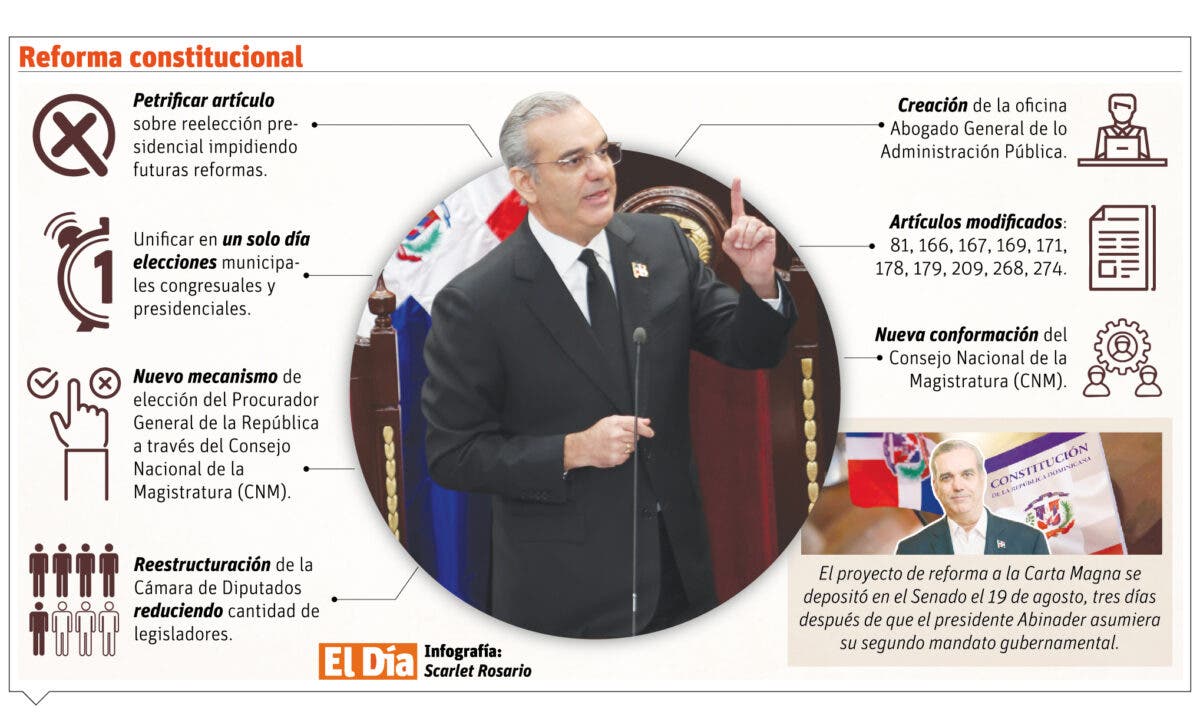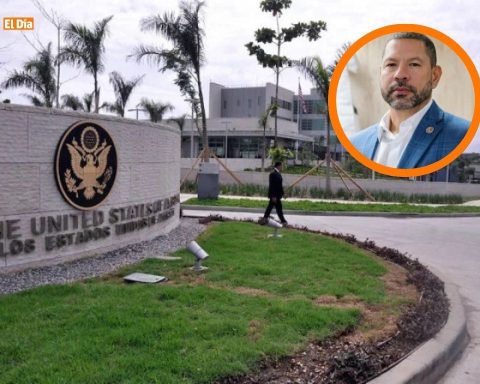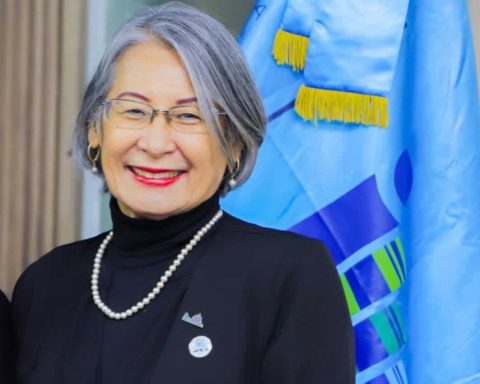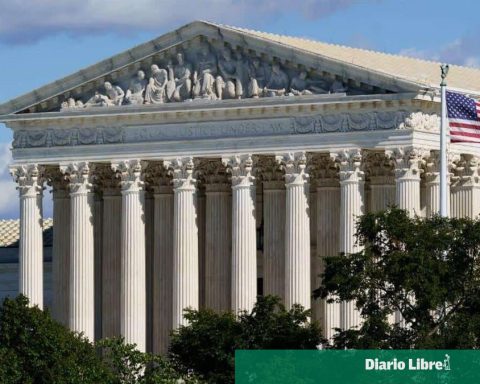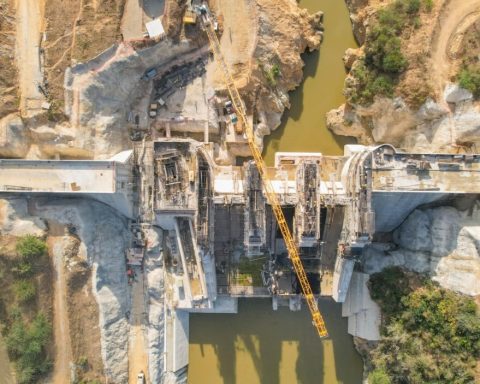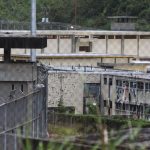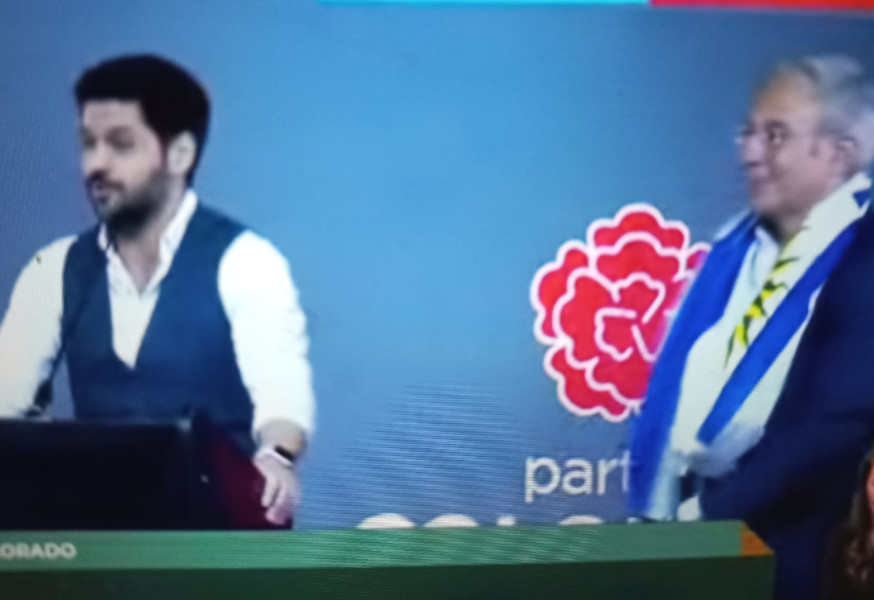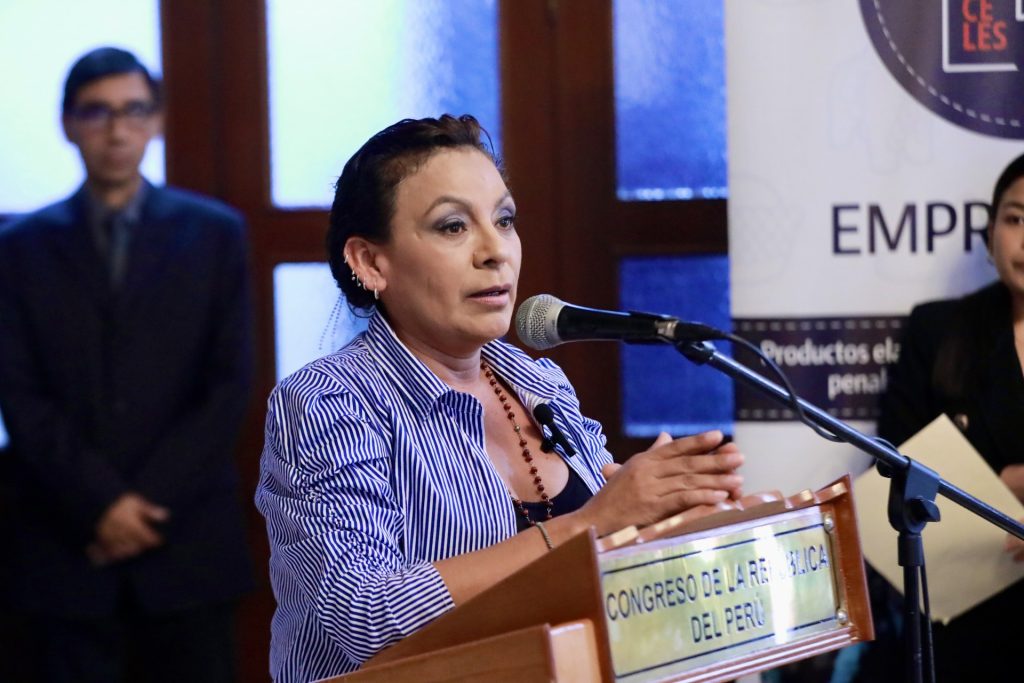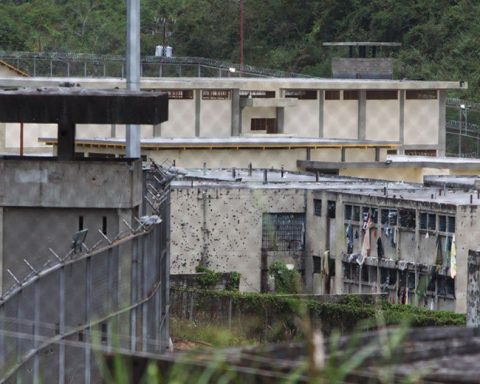Santo Domingo.-President Luis Abinader yesterday led the act in which the General Review Assembly proclaimed the new Constitution, which introduces eleven modifications in the congressional, electoral and judicial spheres.
During his speech, Abinader stressed the commitment of the Dominican Republic to alternation in power, the independence of the Public Ministry and the protection of the fundamental principles of the Constitution.
«We added a transitional clause of great importance. This establishes that the president elected in 2024, that is, the person speaking to you, will not be able to opt for a new candidacy in the future, reaffirming a clear commitment to the alternation in power.
“Those who doubted that this was possible will now have to believe my words,” said the president while being applauded by those present.

Ricardo de los Santos delivers a new Constitution to President Abinader. JOSE DE LEON
He stressed that he refused any “negotiation or political convenience,” maintaining his proposal to prohibit those who were elected in 2016, in that case former president Danilo Medina and Margarita Cedeño, from running again for the position of president and vice president of the country.
“Refusing negotiations or political expediency, we reiterate that anyone who was already elected in 2016 will not be able to run again either,” he indicated.
He added that the changes enacted represent a vision of justice, peace and stability, aimed at strengthening confidence in Dominican institutions and the future of the country.
Choice
The head of state pointed out that one of the pillars of this reform is the expansion of article 268, which enshrines the presidential election as an unmodifiable right, ensuring alternation in power as an essential principle. “With this measure, no president, present or future, will be able to modify the election rules for his own benefit,” declared the president.
This provision, along with a clause that prevents the current president from seeking re-election, reinforces the commitment to limit power, protecting institutional stability and consolidating a system of government without perpetual leadership.
Additionally, the president presented a new structure for the selection of the Attorney General and deputy attorneys.
The singing of the National Anthem and the firing of 21 cannon salutes marked the proclamation of the fortieth constitutional modification, in which, in addition to the official legislators, officials and special guests were present.
No opposition representatives attended the event.
The National Review Assembly resumed its session yesterday after 10:00 am with the attendance of 27 senators and 135 deputies. Meanwhile, 13 legislators, mostly from the opposition, presented excuses.
For his part, the president of the National Review Assembly, Senator Ricardo de los Santos, expressed that this essential Reform to the Magna Carta is the result of the transcendental initiative undertaken by the citizen president Luis Abinader, who, due to his broad vision as a democratic statesman He has renounced the natural flattery that plagues power and the egocentrism it generates.
“Today, the Dominican Republic is growing as a nation; this morning in the National Congress a historic event was recorded that will undoubtedly remain marked in our memory as a transcendental event, which signals a new era for the strengthening of our democratic system.” said the president of the Senate.
Opposition did not attend Magna Carta proclamation
Act. Legislators from the Dominican Liberation Party (PLD) and Fuerza del Pueblo were largely absent during the act of proclamation of the 40th modification of the Constitution of the Republic.
With a registration of 26 senators out of 32 and 137 deputies out of 190, the quorum was validated.
On Friday the legislative blocs in both organizations communicated their decision not to participate.
Present at the event were Vice President Raquel Peña, the President of the Supreme Court of Justice, Luis Henry Molina; the president of the Senate, Ricardo de los Santos; Alfredo Pacheco, president of the Chamber of Deputies, and the president of the Constitutional Court, Napoleón Estévez.
